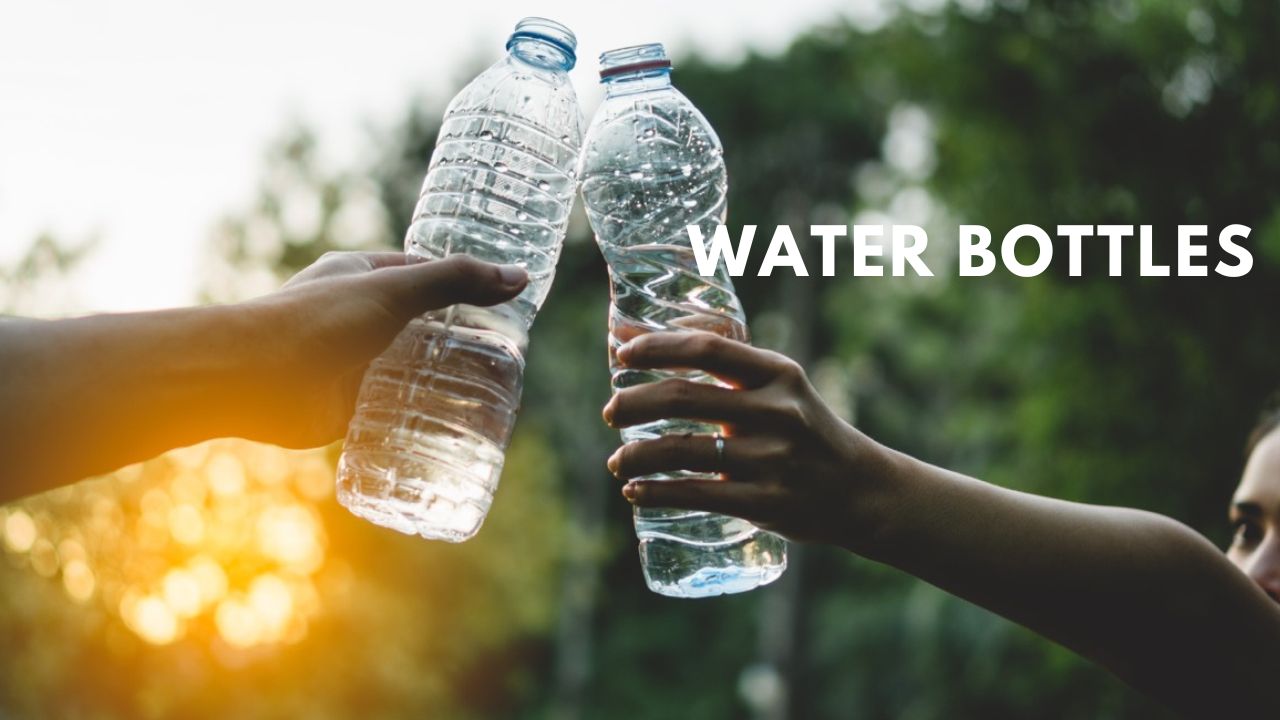Introduction:
In today’s fast-paced world, convenience often takes precedence over sustainability. One area where this is evident is in the widespread use of plastic water bottles. While it may seem harmless to reuse these bottles, there are significant health and environmental risks associated with doing so. In this article, we will give yout the full details wellhealthorganic.com:know-why-not-to-reuse-plastic-water-bottles-know-its-reason-in-hindi into the reasons why you should avoid reusing plastic water bottles and explore the alternatives for a healthier and more eco-friendly lifestyle.
The Dangers of Reusing Plastic Water Bottles:
Chemical Leaching: Plastic water bottles are typically made from polyethylene terephthalate (PET), a type of plastic that can leach harmful chemicals into the water over time, especially when exposed to heat or sunlight. When you reuse a plastic water bottle, the wear and tear from washing and refilling can accelerate this process, leading to the release of toxins such as phthalates and bisphenol A (BPA). These chemicals have been linked to various health issues, including hormone disruption, reproductive problems, and even cancer.
Bacterial Contamination: Another significant concern with reusing plastic water bottles is the risk of bacterial contamination. Despite our best efforts to clean them, plastic bottles are porous and can harbor bacteria, mold, and other pathogens. When you refill a bottle without proper sterilization, you’re essentially creating an environment conducive to bacterial growth. Consuming water from contaminated bottles can result in gastrointestinal issues and other infections, compromising your health in the process.
Degradation of Plastic: Plastic is not designed for repeated use. Each time you refill a plastic water bottle, it undergoes wear and tear, leading to microscopic cracks and scratches. These imperfections not only provide breeding grounds for bacteria but also compromise the structural integrity of the bottle. As a result, harmful chemicals from the plastic can leach into the water more easily, posing a greater risk to your health with each reuse.
Environmental Impact: Beyond the health concerns, reusing plastic water bottles also has a significant environmental impact. The production and disposal of plastic contribute to pollution, deforestation, and climate change. By choosing to reuse plastic bottles instead of opting for reusable alternatives, you’re perpetuating this cycle of environmental degradation. Additionally, many plastic bottles end up in landfills or oceans, where they take hundreds of years to decompose, further exacerbating the problem.
Features
Here are some features that wellhealthorganic.com:know-why-not-to-reuse-plastic-water-bottles-know-its-reason-in-hindi
Detailed Articles:
The website provides in-depth articles that explain the dangers of reusing plastic water bottles, covering topics such as chemical leaching, bacterial contamination, and environmental impact.
Infographics and Visual Aids:
WellHealthOrganic.com utilizes visually engaging content like infographics, diagrams, and charts to illustrate the risks associated with reusing plastic water bottles, making complex information easier to understand.
By using tools such as Adobe Express free infographic maker, they ensure that their educational materials are both professional and accessible.
Expert Interviews:
The website may feature interviews with experts in environmental science, health, and sustainability to provide authoritative insights into the negative effects of plastic water bottle reuse.
Product Reviews and Recommendations:
wellhealthorganic.com:know-why-not-to-reuse-plastic-water-bottles-know-its-reason-in-hindi offers reviews and recommendations for alternative eco-friendly water bottle options, such as stainless steel, glass, or BPA-free plastic bottles, helping visitors make informed choices.
Interactive Quizzes and Assessments:
To engage visitors and reinforce learning, the website may include interactive quizzes or assessments that test their knowledge about the hazards of reusing plastic water bottles and provide feedback.
Community Forums and Discussions:
WellHealthOrganic.com fosters community engagement by hosting forums and discussions where visitors can share their experiences, ask questions, and exchange tips on reducing plastic waste.
Resource Library:
The website provides a comprehensive resource library containing downloadable guides, reports, and educational materials related to plastic pollution, recycling, and sustainable living practices.
The Safer Alternatives:
Stainless Steel Water Bottles: Stainless steel water bottles are a durable and eco-friendly alternative to plastic. They are non-toxic, reusable, and easy to clean, making them ideal for everyday use. Stainless steel bottles are also better at retaining the temperature of your beverage, whether hot or cold, making them perfect for any occasion.
Glass Water Bottles: Glass water bottles are another excellent option for those looking to avoid plastic. Glass is nonporous and non-toxic, meaning it won’t leach harmful chemicals into your water. Plus, glass bottles are dishwasher safe and can be reused indefinitely, making them a sustainable choice for both your health and the environment.
BPA-Free Plastic Bottles: If you prefer the convenience of plastic but want to avoid the risks associated with traditional plastic water bottles, opt for BPA-free alternatives. These bottles are made from safer plastics that don’t contain harmful chemicals like BPA or phthalates. While they may still have some environmental impact, they are a better option than regular plastic bottles.
Conclusion:
While wellhealthorganic.com:know-why-not-to-reuse-plastic-water-bottles-know-its-reason-in-hindi may be tempting to reuse plastic water bottles for the sake of convenience, the risks far outweigh the benefits. From chemical leaching to bacterial contamination, there are numerous health hazards associated with reusing plastic bottles. By choosing safer alternatives such as stainless steel or glass bottles, you can protect both your health and the environment. So, next time you reach for a drink, remember to say no to plastic and opt for a healthier, more sustainable option. Your body and the planet will thank you for it.
Why shouldn’t I reuse plastic water bottles?
Reusing plastic water bottles can lead to chemical leaching, bacterial contamination, and degradation of the plastic, posing health risks and environmental concerns.
What chemicals can leach from plastic water bottles?
Plastic water bottles may leach harmful chemicals such as phthalates and bisphenol A (BPA), which have been linked to hormone disruption, reproductive issues, and cancer.
How does reusing plastic bottles contribute to bacterial contamination?
Plastic bottles are porous and can harbor bacteria, mold, and other pathogens. Reusing bottles without proper sterilization can create an environment for bacterial growth, increasing the risk of infections.
What are the environmental impacts of reusing plastic water bottles?
Reusing plastic water bottles perpetuates the cycle of plastic pollution, leading to pollution, deforestation, and climate change. Plastic bottles also contribute to landfills and ocean pollution, taking hundreds of years to decompose.
What are the safer alternatives to plastic water bottles?
Safer alternatives include stainless steel and glass bottles, which are non-toxic, reusable, and easy to clean. BPA-free plastic bottles are also available for those who prefer the convenience of plastic without the associated risks.
You May Also Like: TechNewzart

